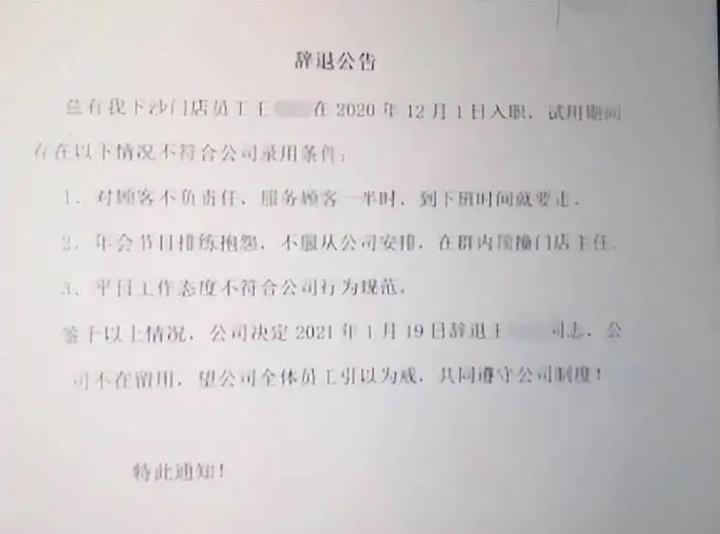Work Culture and Employee Rights: A Case of Wrongful Dismissal in China
A beauty salon worker in Hangzhou, China was fired after refusing to participate in after-hours dance practice for a company annual party. The company’s subsequent dismissal notice sparked controversy over workplace rights and management practices.

In January 2021, a case of workplace conflict at a health management company in Hangzhou, China highlighted significant issues in corporate culture and labor rights. A 36-year-old beautician, Ms. Wang, found herself at the center of controversy after declining to participate in dance rehearsals following a 12-hour workday.
The incident began when Ms. Wang, having completed her regular shift, was instructed to stay for dance practice for the upcoming company annual party. Exhausted from her extended workday and given no prior notice about the rehearsal, she chose to return home. This decision triggered a series of events that would expose problematic management practices.
The store manager promptly reported the incident to upper management, leading to a confrontation in the company’s WeChat group. When Ms. Wang suggested that such activities should be planned in advance, she was met with sarcastic responses from management. The following day, she was presented with an ultimatum: either comply completely with management directives or face reassignment or termination.
The situation escalated when, after Ms. Wang chose to resign, the company issued a dismissal notice citing three violations:
- Inadequate customer service
- Insubordination regarding annual party preparations
- Non-compliance with company behavioral standards
This dismissal notice proved to be a critical misstep by the company. Labor law experts point out several legal issues with the company’s actions:
First, requiring participation in after-hours activities following a 12-hour workday violates China’s labor laws, which mandate a maximum 8-hour workday. Second, dance rehearsals for company events fall outside normal job responsibilities, making them voluntary activities rather than mandatory duties. Third, the company’s demand for complete compliance and silence suggests an unreasonable management style that infringes on workers' rights.
The case reveals deeper issues in workplace culture, particularly in service industries where some managers exercise disproportionate control over employees' time and personal boundaries. The company’s reaction - attempting to transform a voluntary resignation into a dismissal - likely strengthens Ms. Wang’s position in potential labor arbitration proceedings.
Legal experts suggest that Ms. Wang has strong grounds for pursuing compensation through labor arbitration. The company’s documented behavior and questionable dismissal notice could entitle her to double the standard severance payment under Chinese labor law, as the dismissal appears to violate legal requirements for termination.
This incident serves as a cautionary tale about workplace rights and the importance of maintaining professional boundaries between work duties and voluntary corporate activities. It also demonstrates how misguided attempts to assert authority can backfire, potentially resulting in legal consequences and compensation requirements for employers who overstep their bounds.
The case has sparked widespread discussion about workplace culture in China, particularly regarding the balance between company traditions and employee rights, and the need for clearer boundaries in employer-employee relationships.